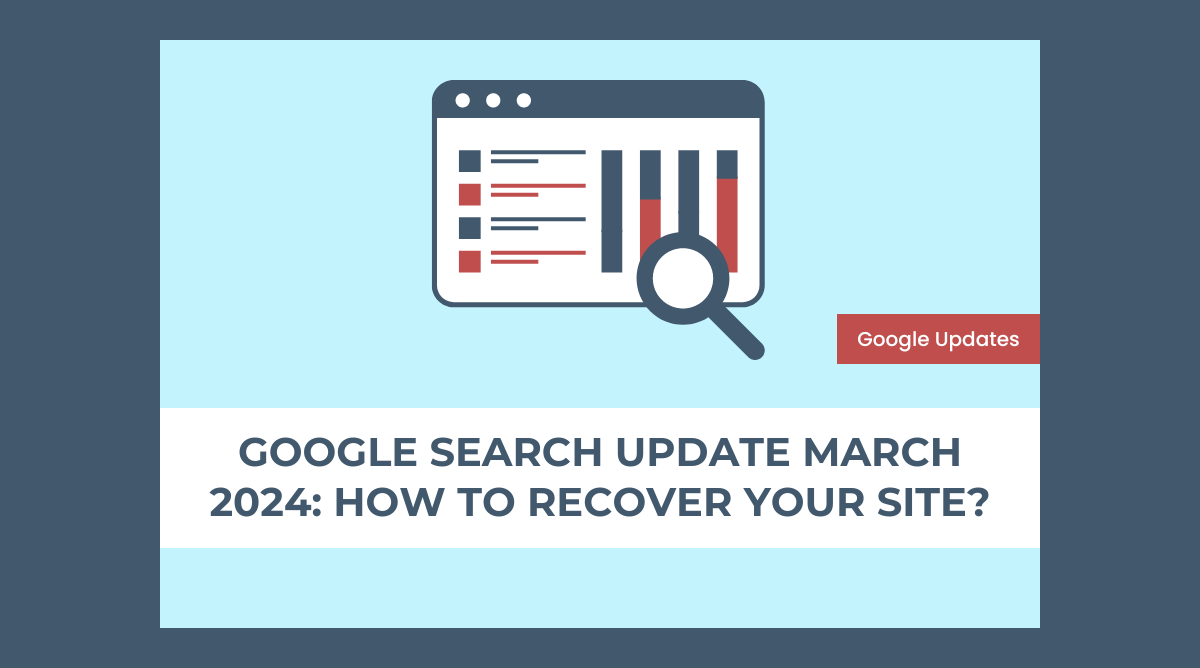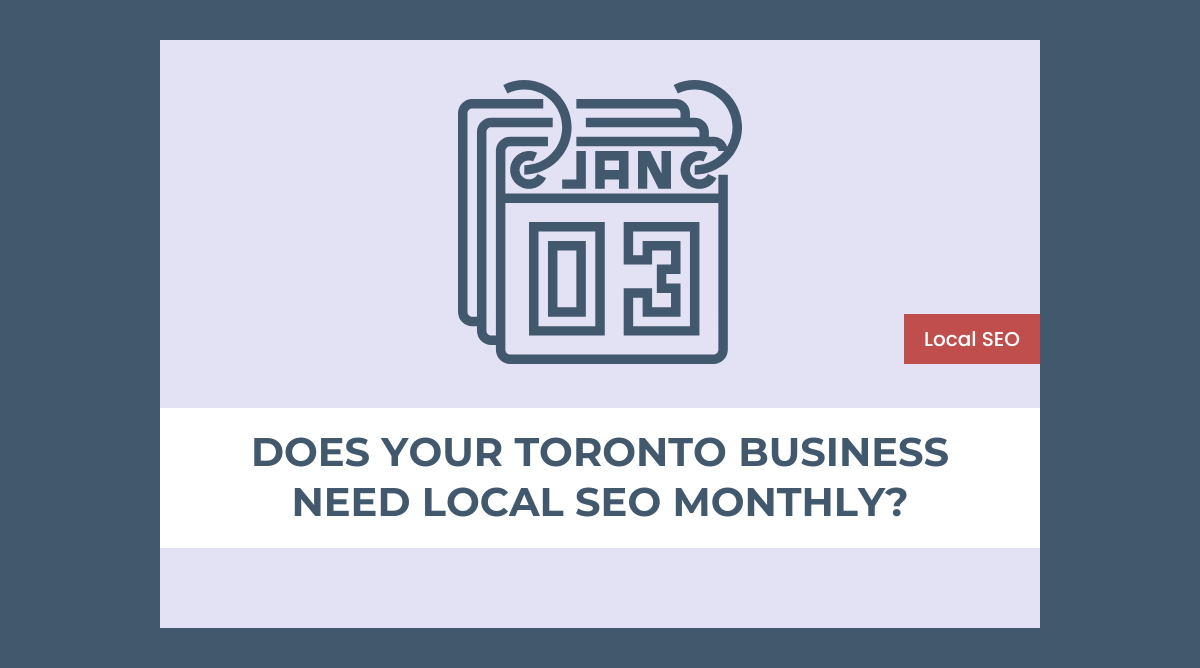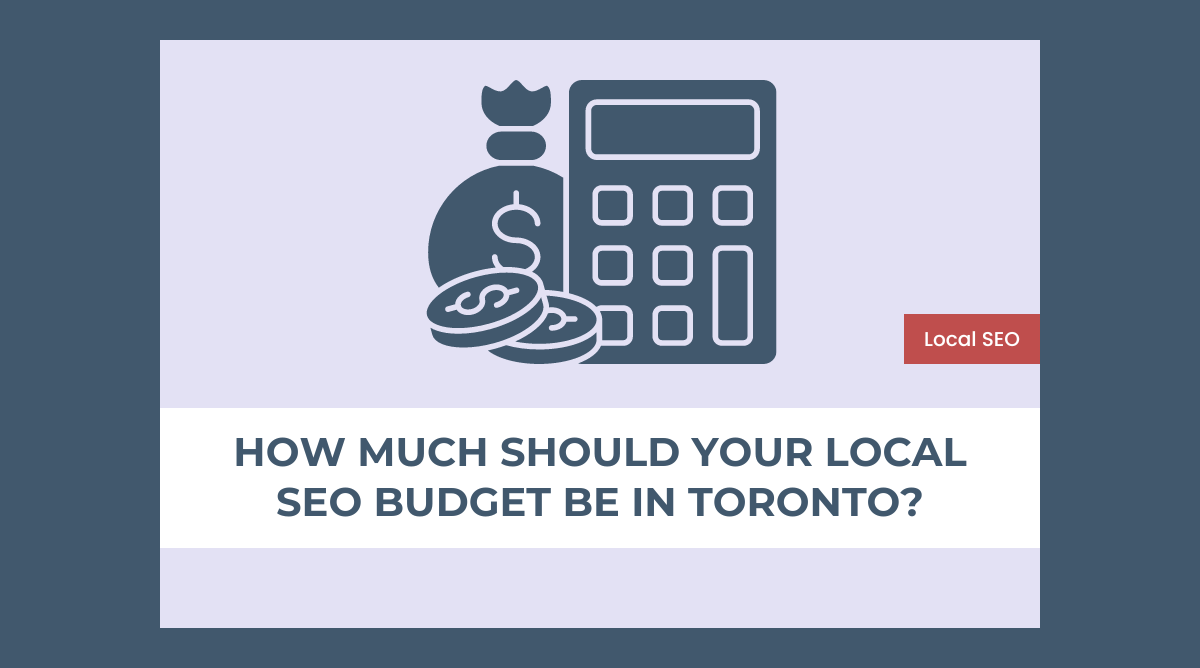How Long Does Local SEO
Take to Produce Fair Results?
All local business owners want to know how long it takes to produce fair results and get rankings from local SEO, which can increase their online sales on search engines like Google.
Having worked with 20+ businesses in Toronto’s competitive market, we can confidently say that…
On average, new businesses may take up to 10–months to produce fair results from local SEO, while old businesses might take up to 6–months. Different practices, like White Hat Local SEO, can take about 10–months. Gray Hat Local SEO can take about 6–months, and Black Hat Local SEO can take about 3–months, but these two come with risks.
Let’s find out together in detail: When do you see Local SEO results?
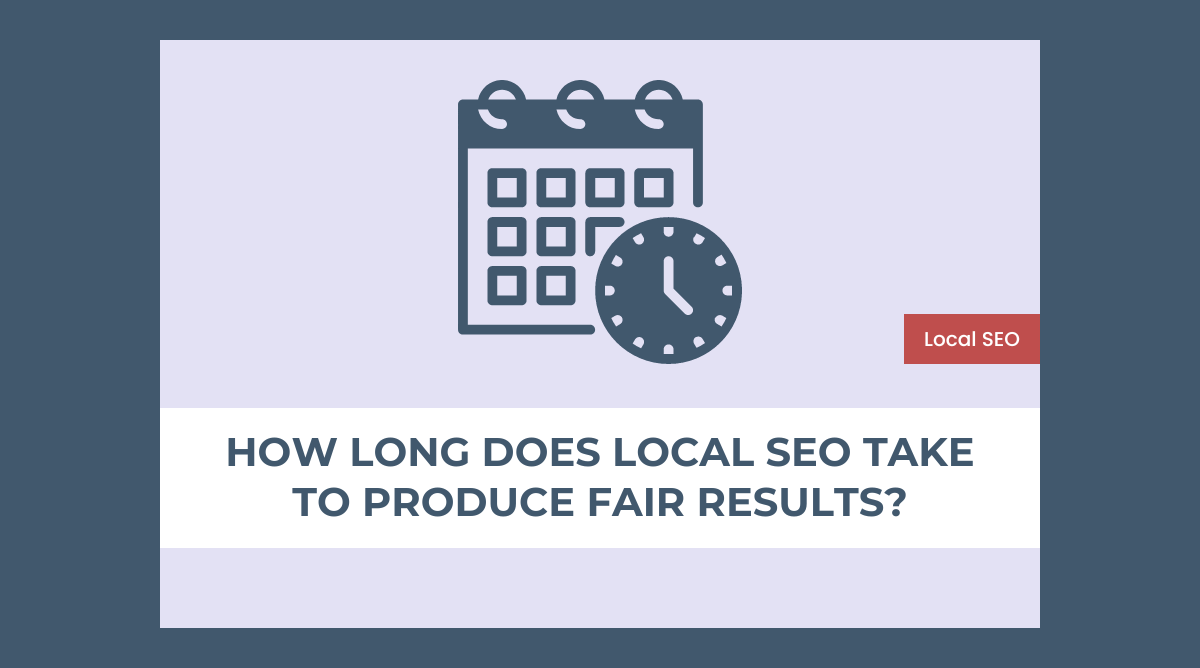
How Long Does It Take for New and Old Businesses?
How Soon Do New Businesses See Local SEO Results?

1. Competitors Analyzing and Creating a Strategy
2. Setting Up an Online Presence from Zero
3. Creating Content and Building Authority
Creating helpful content for a local audience helps build your business’s authority. You’ll need to choose a topic to write on. It takes at least 6–months for a new business to start creating helpful, quality content and to build some authority.
Remember that only original content will rank on Google now, so avoid AI-written content. Along with writing content and building authority, you must do on-page SEO, an ongoing process with no timeline.
TIP: Look at how many words of written content build the site’s authority and rank on search engines like Google in this infographic. (Source: Smart Insights Digital Marketing
4. Listing Your Business on Directories
Local citations, which can help achieve up to 7% of rankings, should be considered. Listing your business on directories or local citation sites can take 1 to 2–weeks.
You can find directories or citation sites for different business categories in Canada here.
5. Getting Some Local Backlinks
For your new business, getting a fair number of backlinks from local websites may take 3 to 4–months. If one strategy fails, you’ll need to use different strategies.
Some people consider backlinks and citation building the same, even though they seem similar. This post explains our intent when working on them.
TIP: Remember that trading backlinks for backlinks can get you into trouble with Google. This practice can lead to penalties, so it’s best to avoid it.
6. Getting Positive Reviews
90% of brands believe that online reviews impact local rankings. (Source: LocaliQ)
To see some fair results from local SEO, 20 to 30 genuine reviews will be sufficient for a new business. It could take you up to 3–months. If the reviewers use keywords related to your business, it will further boost your rankings because Google shows this in local search results.
TIP: Buying reviews isn’t recommended because most sellers use fake Gmail IDs, which Google can easily detect. Because of this, Google doesn’t give you rankings and harms your business’s credibility.
7. Publishing Consistent Posts on GMB
Calculating the Total Required Time for New Businesses

These two tasks can be done together, so it will take us a total of 1-month to complete them.
- Competitors analyzing and creating a strategy: 3-weeks
- Setting up an online presence from zero: 1-month
These three tasks can be done together, so we’ll consider them to take 6–months to complete.
- Creating content and building authority: 6-months
- Listing your business on directories: 2-weeks
- Getting some local backlinks: 4-months
These two tasks can be done together, so completing them will take 3–months.
- Getting positive reviews: 3-months
- Publishing consistent posts on GMB: 1-month
So, for a new business, local SEO will take 10–months in Total to produce fair results and attract new customers.
When do Old Businesses See Local SEO Results?
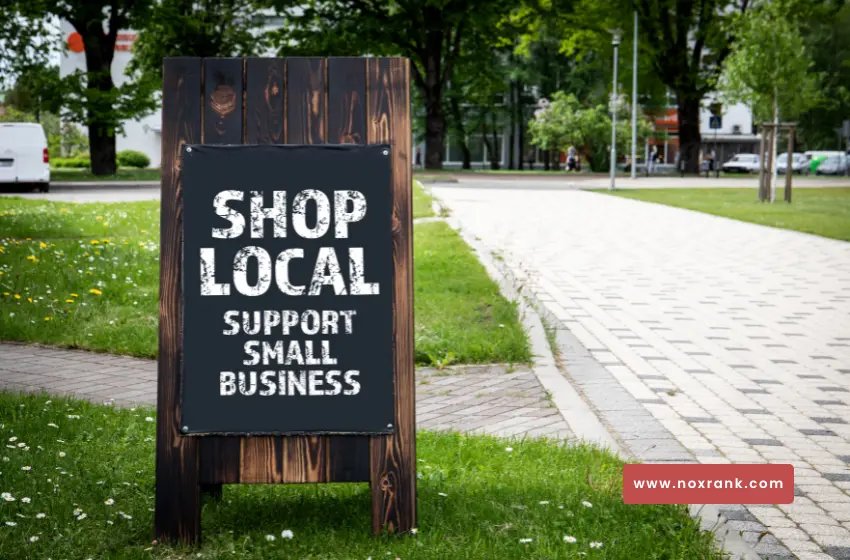
1. Analyzing Competition and Creating a Strategy
As an old business, analyzing your competitors can take 2–weeks, and creating a better local SEO strategy can take 1–week, totalling 3–weeks.
It’s essential to do this process correctly; otherwise, your time and money will be wasted. Therefore, for this step, only choose businesses that work exclusively in the local SEO industry and don’t offer various services.
2. Analyzing and Updating Existing Online Presence
3. Improving On-Page SEO and Content Quality
4. Optimizing Local Citations and Backlink Profiles
To ensure the accuracy of your business’s citations, you can use tools such as BrightLocal. You can use it to identify any issues that need fixing. Once you have done that, optimizing them should take about 1–week.
I recommend using the Ahrefs tool to check your backlinks. It’s pricey, but it’s the most accurate tool available. If your competitors have created spammy links to hurt your website, submit a disavowed link list in Google Search Console to eliminate them. This process takes about 1–week at most.
5. Creating New Content
Creating new content with an excellent strategy for fair results from local SEO might take up to 2–months. By choosing a sub-niche of your business’s niche and creating helpful content solely around it, you can achieve the desired results more quickly.
TIP: Always remember to write only within your business category. For example, search engine optimization is a broad niche, and local SEO is its sub-niche. NoxRank only creates blog posts related to local SEO. How about writing about social media marketing on this website? It would be useless.
6. Getting Reviews from Existing Customers
Due to your business being established for a while, you may have received some reviews. However, getting extra reviews will further strengthen your local SEO strategy, increasing the chances of getting better results in less time. However, this process can take 1–month.
Our local SEO services have helped many businesses in Toronto. All our clients keep their customer’s data, which they can use to offer promotional offers in the future. If you have also done this, you can ask your existing customers who haven’t yet given reviews to provide one for your business.
7. Publishing Consistent Posts on GMB
8. Monitoring Results and Adjusting Strategy
For an old business, it’s possible to change its strategies. While performing the tasks mentioned above, you can gauge what’s performing well and what isn’t.
After 3–months of executing these tasks, you can slightly change your local SEO strategy, which may take up to 2–weeks.
Calculating the Total Required Time for Old Businesses
Let’s calculate how long an old business will take to produce fair results from local SEO.

We should do these three tasks separately, as it would take us 3.5– months to complete them.
- Analyzing competition and creating a strategy: 3–weeks
- Analyzing and updating existing online presence: 3–weeks
- Creating new content: 2–months
These two tasks can be done together, so they’ll take us 1.5– months to complete.
- Improving on-page SEO and content quality: 6–weeks
- Optimizing local citations and backlink profiles: 2-weeks
These three tasks can be done together, so they’ll take us a total of 1–month to complete.
- Getting reviews from existing customers: 1–month
- Publishing consistent posts on GMB: 1–month
- Monitoring results and adjusting strategy: 2–weeks
So, for an old business, local SEO will take 6–months in Total to produce fair results and attract new customers.
Timeline by Implementing Local SEO Approaches

White Hat Local SEO Techniques
Good results with White Hat SEO can take up to 10–months. Google and NoxRank recommend using these techniques because they offer long-term benefits and help you leverage future Google updates.
Let’s see what these techniques include.
1. Optimizing Google Business Profile
2. Listing Your Business on Local Directories
3. Creating Link-worthy Content
It means creating content on your website that others love reading and sharing. Examples include infographics, how-to guides, and case studies.
4. Using Keywords Naturally
5. Getting Reviews from Real Customers
Gray Hat Local SEO Techniques
1. Keyword Stuffing in GBP Title
2. Doorway Pages or Thin Content
- Online marketing services in Toronto
- Online marketing services in Mississauga
- Online marketing services in Markham
3. Buying Reviews
Google knows the reviewer’s location, including the country, city, and area they’re in.
Black Hat Local SEO Techniques
1. Creating Fake GMB Listings
2. Building Spammy Local Backlinks
You can generate links for your website yourself or purchase them. Google’s Penguin algorithm can identify unnatural links and determine their source. Even though this method may provide temporary benefits, knowing the potential consequences is important.
In some instances, website owners have had their sites deindexed by Google updates, resulting in years of hard work lost.
3. Fake Review Posting for Competitor Listings
Other 2 Factors that Influence How Long It Takes

1. Your Marketing Budget
With a reasonable marketing budget, you can speed up the local SEO process, increasing the chances of getting good results sooner.
For example, with a reasonable marketing budget, you can allocate tasks among more people to achieve quicker results.
2. The Local SEO Team You Hire
Choose NoxRank to Get Quick Local SEO Results
Key Takeaways
- Local SEO can produce good results in 10–months for new local businesses and 6–months for old businesses.
- We don’t recommend using Gray-Hat or Black-Hat Local SEO techniques as Google and NoxRank oppose them. We mentioned this to inform you about the potential harm of such techniques.
- How long it takes to get results depends on your budget; a reasonable marketing budget can speed things up even more.
